AAC Year-Round Graduate Assistants
The Academic Advising Center provides advising services for students in the College of Liberal Arts & Sciences (CLAS); we also assist exploratory students, pre-health and pre-law students, and any students interested in CLAS academic pursuits. General responsibilities for a Graduate Assistant in the AAC include advising students regarding registration, choosing and changing majors, campus resources to enhance academic success, and many other advising services. Graduate Assistants have the opportunity to get involved in different committees within our office which are focused on serving PROMISE scholars, exploratory students, and students facing academic difficulty. Graduate Assistants may also have the opportunity to work with the CLAS ambassadors, College Petitions Committee, Assessment committee, Communications committee and Transfer student outreach.
In addition to being admitted to the UF Graduate School, you must be able to work both Fall and Spring semesters in order to fulfill the 0.5 FTE (20 hour/week), nine-month appointment. Traditionally, we search for graduate students who can provide a two year commitment to this role. This position includes a tuition fee waiver for nine (9) credit hours/semester during the Fall and Spring semesters.
Preview Internships
The Academic Advising Center is responsible for coordinating all orientation advising for incoming students. The UF Preview orientation program gives an overview of registration, campus resources and all aspects of the university. This program is in collaboration with the Academic Advising Center, New Student & Family Programs, and Preview advisors.
Primary responsibilities include presenting sessions for Exploratory (undecided) students to assist them with exploring majors and campus resources, presenting sessions to provide an overview of UF’s academic requirements, and advising students on an individual basis with course selection and registration. Occasional outside exploratory projects may also come up throughout the summer. A successful candidate will possess a strong understanding of the importance of major and career exploration, professional communication skills, and the ability to work in an ever-changing orientation environment. This position would also require approximately 30 hours of training from mid-March through early May; actual Orientation dates will span from Mid-May to the end of July.
AAC Shadowing Opportunity
Are you a graduate student interested in learning more about academic advising? If you are interested in spending a day at the Academic Advising Center learning about the profession and shadowing professional advisors, contact our Graduate Student Professional Development Coordinator, Glenn Kepic (gkepic@advising.ufl.edu). Your day will include:
- Introductory meeting where you will learn about the history and profession of Academic Advising, confidentiality and FERPA
- Shadow several different professional advisors to observe different advising styles
- Review your day by processing what you observed and discussing what you learned
Learn More about the profession of academic advising at the NACADA homepage.
Meet Some of Our Former Graduate Assistants
Richard Blake, 2011-2013. Assistant Director, Machen Florida Opportunity Scholars Program at UF
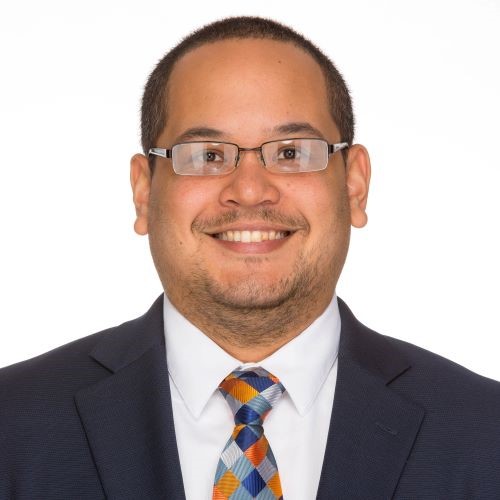
What I learned from my AAC assistantship:
I learned key skills including teamwork, problem-solving, communication, and taking initiative.
Teamwork: opportunity to learn from broad range of specialists within the AAC including pre-health, pre-law, exploratory, and transfer teams. This allowed me to learn different skillsets for working with a wide variety of students.
Problem-solving: Due to the scope of knowledge and work required in the AAC, there was always room for discuss on improving/trying new methods of connecting with students. For example, during extremely busy times, I was able to participate in a pilot “quick advisor” style option at the front desk to expedite advising services for simple tasks.
Communication: working with such a variety of students each day enhanced my abilities to not only deliver critical academic information, but also practice different methods of delivery based on student personalities/attitudes. Each student advising interaction required slightly different styles of delivery to ensure students felt heard and understood during the advising session.
Taking initiative: working in higher education is an ever evolving career. Solutions that once worked may not and the AAC and my supervisors allowed me to try new initiatives. For example, I was a member of the Preview (orientation) presentation team and helped to develop a new presentation for incoming students. Each year, the presentation was modified further to account for student needs.
How my AAC assistantship prepared me for my career:
I was able to learn how to effectively communicate with a very diverse mix of students on topics that ranged from basic class selection to more advanced discussions on life goals and creating pathways to achieve them.
My career path has been:
I was a GA in the AAC for 2.5 years before transitioning to a full time position in the center for an additional 3.5 years. I subsequently moved to my current position in the MFOS program.
Emily Greer, 2015-2018. Bowling Green State University College Credit Plus Academic Advisor
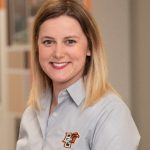
What I learned from my AAC assistantship:
I loved being a graduate assistant for the Academic Advising Center! I got to work with students from a wide variety of backgrounds. Every day was a surprise I never knew what sort of student situation would be coming in the door. I learned the importance of being present, empathetic, and solution-focused when working with students. This assistantship was a great fit for me, because it gave me many opportunities to practice my counseling skills (listening, empathy, unconditional positive regard, asking open-ended questions, and goal setting strategies).
How my AAC assistantship prepared me for my career:
My AAC assistantship was the stepping stone I needed to get into the field of Higher Education. It gave me direct experience working with undergraduate students and the opportunity to advise on a wide variety of majors. I was able to work with unique student populations such as exploratory, transfer, pre-health, and at-risk students on probation. The advising skills and knowledge I developed while a graduate assistant directly transfer to the work I do now at Bowling Green State University.
My career path has been:
I started my career as a high school family and consumer sciences teacher. I taught elective courses such as career search, healthy and safe foods, and child development. After 3 years of teaching, I decided to pursue my master’s in school counseling at the University of Florida. It was my graduate assistantship that made me want to pursue a full-time academic advisor position after graduation. When comparing academic advising and high school counseling, I found that I was getting more student contact as an undergraduate advisor and that I had more resources available to help my students. After graduating in May 2018, I was hired on full-time as an academic advisor at the AAC. I worked there for a year until my husband and I relocated to Ohio to be closer to family. I loved my time at the AAC and would highly recommend it to anyone who has a heart for helping others.
Ashley Jacobs, 2012-2015. HR Manager Strategic Talent Group, UF Human Resources
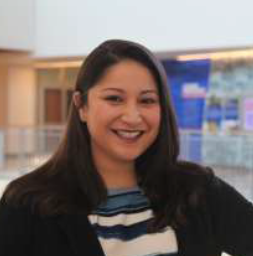
What I learned from my AAC assistantship:
Due to how incredibly dynamic the AAC is and the variety of teams, programs, and responsibilities in the office, I learned a great deal about what it would be like to be a professional in higher ed., academic affairs, and student affairs/student facing roles. I developed my skills specifically in areas such as public speaking, program development, time management, delivering complex information, and trusting myself and my knowledge when working with students and colleagues.
How my AAC assistantship prepared me for my career:
All the positions I’ve held in my career so far have in common that they’ve played a part in facilitating the growth and development of others and consulting on the process and steps to reach determined goals. I was able to do this in different ways as a GA in the AAC (academic advising, teaching classes, presenting at conferences) and I’ve valued being able to use my experiences from when I was a GA as building blocks to move forward in those areas, as well have the confidence to try new spaces for development.
My career path has been:
Interesting! I’ve learned and grown with each opportunity; transitioning from Counseling, to Academic Advising, to Career Services, to Talent Acquisition and Management in Human Resources.
My experience as a GA was very positive because of the high trust, high support environment my supervisors and the staff had towards me even as a GA. I was able to contribute in ways that were meaningful and fruitful, for me and for the office, and through that I learned a lot about myself and what I was interested in pursuing for the next steps in my career.
Shannon Kelly, 2016-2018. Academic Advisor, UF Academic Advising Center
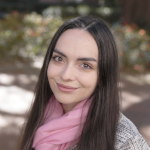
What I learned from my AAC assistantship:
Some of the most valuable things that I learned were about working in a professional setting: how to use Outlook, what office snack/food culture is like, how to interact with a diverse group of coworkers and aspects of email etiquette. These and other lessons I learned because being a GA here is a perfect middle ground between being a student and being a full time professional that fosters comfort with asking for help, which is the largest takeaway that I have.
How my AAC assistantship prepared me for my career:
Aside from the obvious knowledge obtained during my extensive training period that I still use, I made connections and developed professionally throughout my time as a GA. It also encouraged me to be a lifelong learner, and it reinforced the importance of interdisciplinary studies by virtue of being a truly interdisciplinary career.
My career path has been:
Based on a whim but fueled by genuine passion. I worked as a GA in the CLAS AAC and upon graduation interviewed for and was offered a full time position as an Academic Advisor in the same office!
Kris Klann, 2007-2009. Assistant Dean of Student/Director of New Student & Family Programs
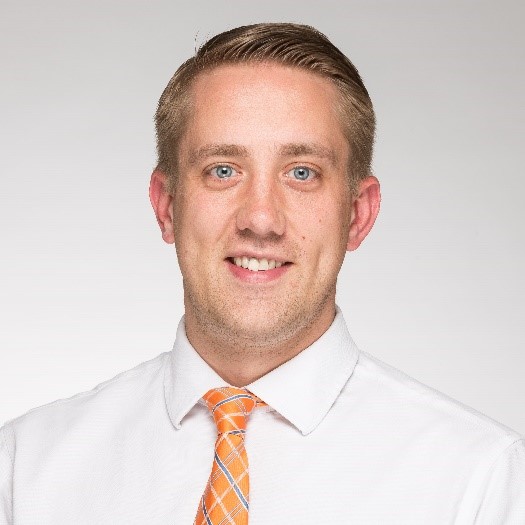
What I learned from my AAC assistantship:
Working as a graduate assistant in the AAC, I learned a lot about the academic experience of students. The university is comprised of so many unique individuals and experiences. Working in advising gives you the opportunity to hear their stories and support them on their journey.
How my AAC assistantship prepared me for my career:
The work I do brings together the academic and non-academic experience of students. I would not be the student affairs professional I am today without my experience working in academic advising.
My career path has been:
After my time as a GA in the AAC, I worked there 3 years professionally. I’ve worked in New Student & Family Programs/Dean of Students Office since 2012.
Chelsea Matson, 2016-2018. Licensed Professional Counselor Associate (LPCA) in private practice
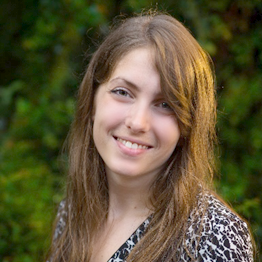
What I learned from my AAC assistantship:
I learned the importance of the role academic advisors play in communicating with students and guiding them along during their time at UF. I learned how valuable help from advisors can be to students, and how important it is to give students accurate information. I also learned how challenging and important it is to effectively balance the students wants and needs with academic and university policies.
How my AAC assistantship prepared me for my career:
The assistantship helped me strengthen my attention to detail, and it reinforced the importance of providing thorough support with accurate information. This has helped me in my counseling career when I needed to connect my clients to outside resources or the correct educational materials for their mental health or relationship patterns.
My career path has been:
After earning my Master’s degree in Mental Health Counseling from UF, I accepted a job as a therapist in private practice. Having the assistantship at the AAC was a great complement to my counseling training.
I am so impressed with the work the AAC does for UF’s College of Liberal Arts and Sciences students. I’ve seen the CLAS advisors work hard handling challenges and paving pave the way for students to successfully focus on their academic careers, and this has been very inspiring for me.
Kelly J. Medley, 2009-2011. External Scholarship & Fellowship Coordinator for the University of Florida

What I learned from my AAC assistantship:
“Growing up” as an advisor in the CLAS-AAC was full of opportunity. I came into my graduate program wanting to better support underrepresented and first-generation students in the advising experience. After my first semester in the AAC, I was able to join the AIM Committee where I learned more about working with underrepresented populations and was in charge of a newsletter mailed to the parents and families of AIM students. Parental involvement is especially critical with many students today, so it was nice learning early on how to supply parents with helpful information that encouraged them to be allies in their student’s education process.
How my AAC assistantship prepared me for my career:
Throughout the various types of advising I’ve done in the last decade, one thing I learned in the AAC stays constant in all my work with students: finding a way to turn disappointment into opportunity.
When I was in the AAC, this often-resembled informing students they were required to change their major. Then, it was critical to turn the discussion to what other types of courses the student enjoyed and excelled in to put them on a positive path to a new major.
In fellowship advising, it is a similar conversation but on different subject matter. Many students come to my office, for example, wanting to be the next Rhodes Scholar, but I often help them see they are not competitive or an appropriate fit for the Rhodes; ideally, I do this by helping them identify other prestigious awards that they may not have known about and that better fit their interests and ultimate goals.
In some ways, this all falls under the style of strengths-based advising. It is a wonderful thing to help a student realize their strengths and potential, especially during times of doubt and disappointment.
My career path has been:
After leaving the AAC, I headed 2,500 miles away to Tempe, Arizona to work as an advisor in a small department at Arizona State University. After two years, I was hired as an advisor in ASU’s Honors College. High-achieving students became a population of interest to me when working on a research project regarding Honors advising with a colleague back at UF. After spending eight year out West, I returned to UF in March 2019 to oversee prestigious fellowship advisement for all students and alumni.
When I was in the AAC, I was encouraged by the professional advisors to get involved with NACADA: The Global Community for Academic Advising. Once I became a member, I started my involvement by reading and scoring conference proposals, won a graduate student scholarship to attend the Region 4 conference, and presented at the Annual conference—all while a graduate student! Since then, I’ve received grant funding for a research project and held several leadership positions in NACADA, including my current position on the NACADA Council at the Region Division Representative. My NACADA involvement is critical to my development as an advisor, and I am so grateful the AAC encouraged and supported me to get started!
Cheryl Walther, 2011-2013. Learning Specialist, Auburn University
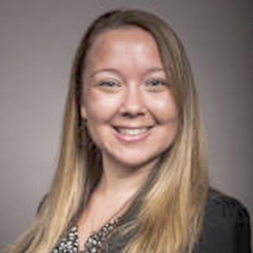
What I learned from my AAC assistantship:
My assistantship at the AAC provided great direct experience as an advisor by actually working in the role, not just observing or assisting advisors. I was able to work with advisors throughout the office to develop my own approach from their examples of different styles and philosophies. In addition to the direct experience with phenomenal support, I was also encouraged to explore opportunities through NACADA to further enhance my professional development which provided better understanding of advising philosophy and theory as well.
How my AAC assistantship prepared me for my career:
The combination of theoretical and practical experience prepared me for my career very well. I was able to get familiar with different record management systems and increase my comfort with numerous degree audits and curricula, which allowed me to adapt quickly at the different institutions where I’ve worked during my career. It also prepared me by making me comfortable working in fast-paced environments where efficiency and detail are equally important, particularly with high stakes such as graduation, etc. that have helped with including NCAA eligibility as I moved toward athletics roles. Though my career transitioned away from advising, there are still many skill sets I developed from my assistantship that I use in my Learning Specialist role.
My career path has been:
Following my assistantship at the AAC, I combined that experience with my athletics practica to work at Florida Gulf Coast University as an Academic Advisor and Athletics Liaison. I moved into athletics as a Learning Specialist since then, establishing the role and related programming at the University of South Florida, Colorado State University, and now enhancing the role at Auburn University.
The AAC staff is one of the best I’ve worked with in higher education! The staff is very supportive and always willing to help someone new to the field have a great experience, but what stood out to me was being treated as if you are one of the salaried staff rather than someone temporary or inexperienced. I had such a great experience and would highly recommend it to anyone considering an advising or related role!